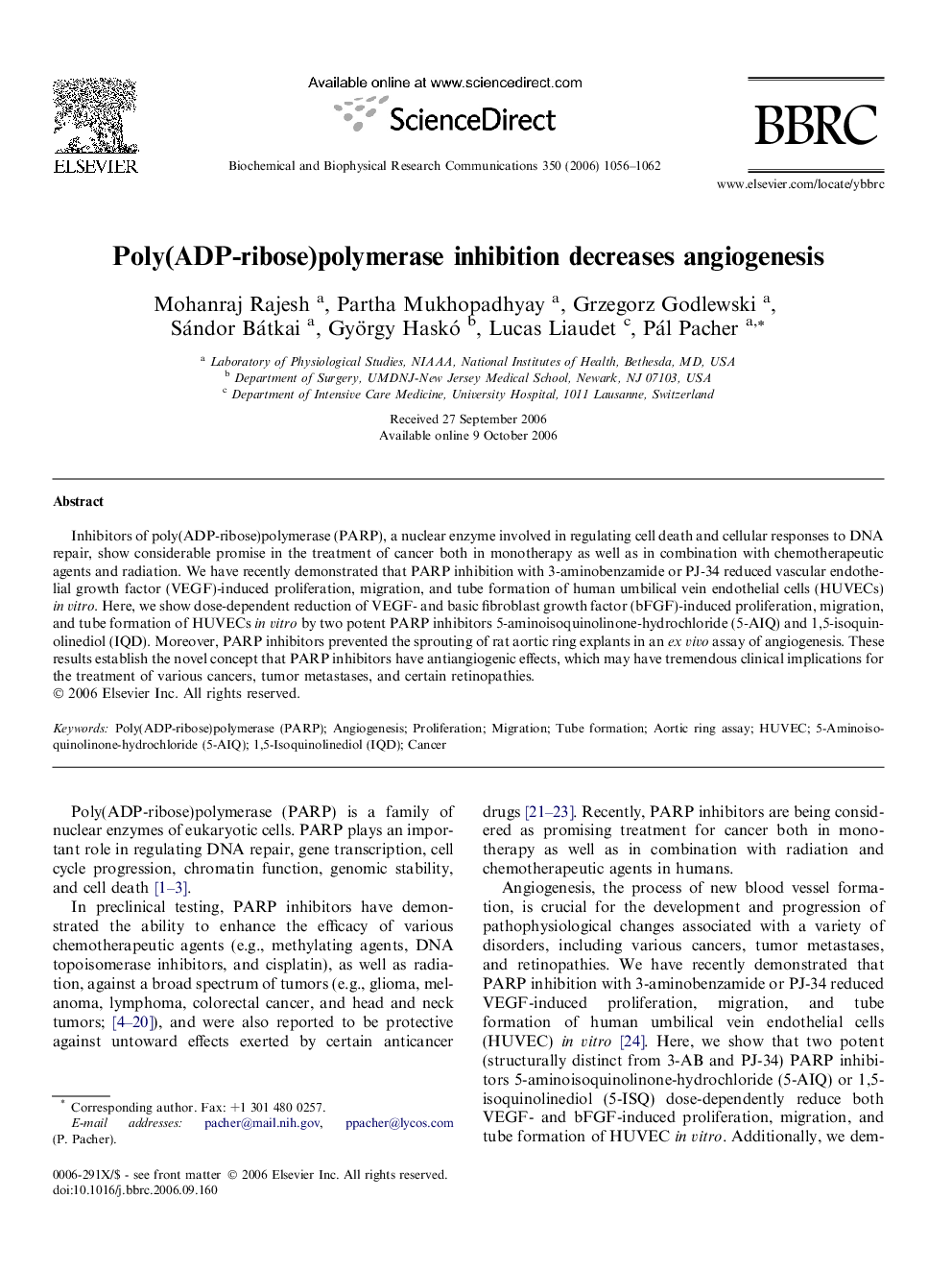| Article ID | Journal | Published Year | Pages | File Type |
|---|---|---|---|---|
| 1938327 | Biochemical and Biophysical Research Communications | 2006 | 7 Pages |
Inhibitors of poly(ADP-ribose)polymerase (PARP), a nuclear enzyme involved in regulating cell death and cellular responses to DNA repair, show considerable promise in the treatment of cancer both in monotherapy as well as in combination with chemotherapeutic agents and radiation. We have recently demonstrated that PARP inhibition with 3-aminobenzamide or PJ-34 reduced vascular endothelial growth factor (VEGF)-induced proliferation, migration, and tube formation of human umbilical vein endothelial cells (HUVECs) in vitro. Here, we show dose-dependent reduction of VEGF- and basic fibroblast growth factor (bFGF)-induced proliferation, migration, and tube formation of HUVECs in vitro by two potent PARP inhibitors 5-aminoisoquinolinone-hydrochloride (5-AIQ) and 1,5-isoquinolinediol (IQD). Moreover, PARP inhibitors prevented the sprouting of rat aortic ring explants in an ex vivo assay of angiogenesis. These results establish the novel concept that PARP inhibitors have antiangiogenic effects, which may have tremendous clinical implications for the treatment of various cancers, tumor metastases, and certain retinopathies.
